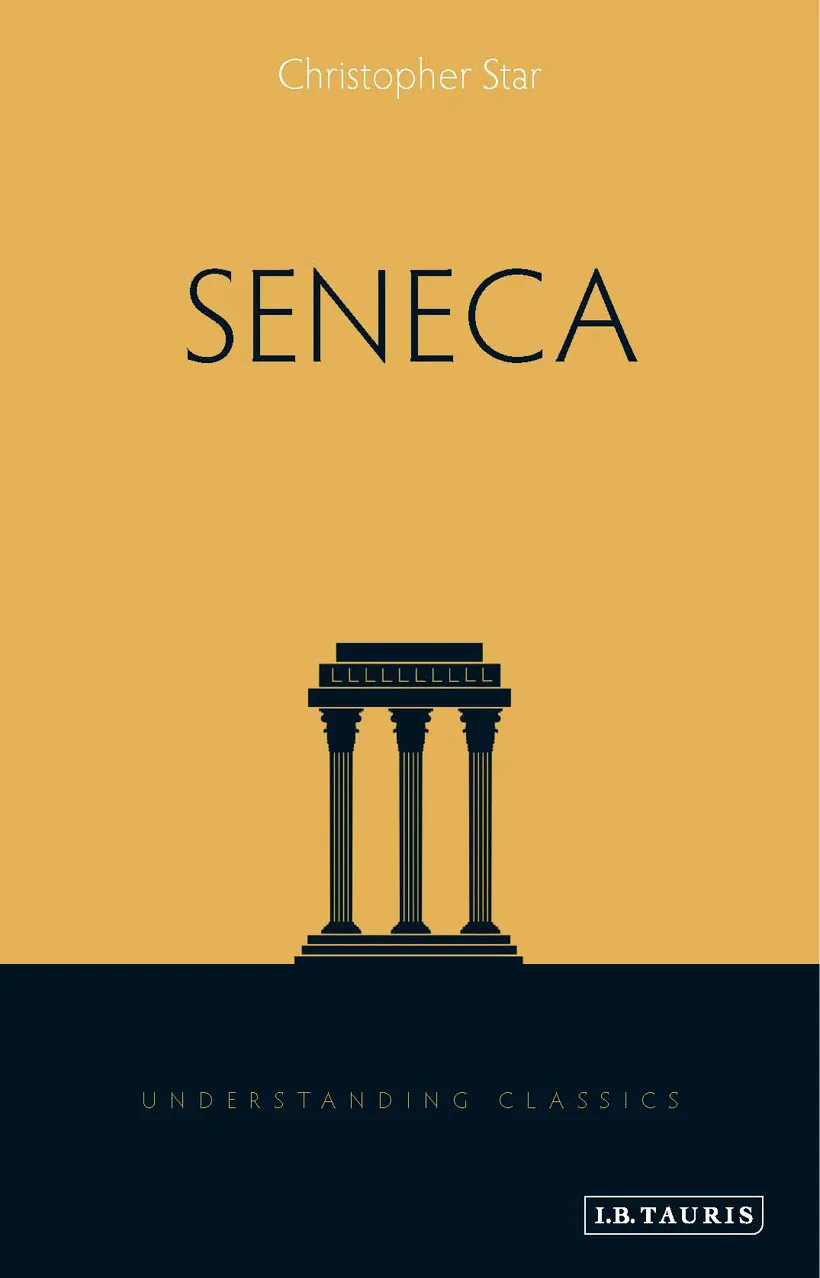![]()
After centuries of neglect there is renewed interest in the life and works of Lucius Annaeus Seneca (or Seneca the Younger, c. 4 BCE–65 CE). At one time an advisor at court to Nero, Seneca and his political career came to ruin when he was implicated in a later plot to kill the capricious and matricidal emperor and compelled to commit suicide. Discredited through collusion, or at least association, with a notorious and tyrannical regime, Seneca’s ideas were for a time also considered derivative of Greek Stoicism and thus inferior to the real thing. In this first in-depth introduction to be published for many years, Christopher Star shows what a remarkable statesman, dramatist and philosopher his subject actually was. Seneca’s original contributions to political philosophy and the philosophy of the emotions were considerable. He was a favourite authority for many early Christian authors, and he is a key figure in the history of ideas and the Renaissance, as well as in literature and drama. This new survey does full justice to his significance.
Christopher Star is Associate Professor of Classics at Middlebury College, Vermont. He is the author of The Empire of the Self: Self-Command and Political Speech in Seneca and Petronius (2012).
Understanding Classics
Editor: Richard Stoneman (University of Exeter)
When the great Roman poets of the Augustan Age – Ovid, Virgil and Horace – composed their odes, love poetry and lyrical verse, could they have imagined that their works would one day form a cornerstone of Western civilization, or serve as the basis of study for generations of schoolchildren learning Latin? Could Aeschylus or Euripides have envisaged the remarkable popularity of contemporary stagings of their tragedies? The legacy and continuing resonance of Homer’s Iliad and Odyssey – Greek poetical epics written many millennia ago – again testify to the capacity of the classics to cross the divide of thousands of years and speak powerfully and relevantly to audiences quite different from those to which they were originally addressed.
Understanding Classics is a specially commissioned series which aims to introduce the outstanding authors and thinkers of antiquity to a wide audience of appreciative modern readers, whether undergraduate students of classics, literature, philosophy and ancient history or generalists interested in the classical world. Each volume – written by leading figures internationally – will examine the historical significance of the writer or writers in question; their social, political and cultural contexts; their use of language, literature and mythology; extracts from their major works; and their reception in later European literature, art, music and culture. Understanding Classics will build a library of readable, authoritative introductions offering fresh and elegant surveys of the greatest literatures, philosophies and poetries of the ancient world.
Understanding Classics
Archimedes
Chris Rorres ∙ Drexel University, Pennsylvania
Aristophanes and Greek Comedy
Jeffrey S. Rusten ∙ Cornell University
Augustine
Dennis E. Trout ∙ Tufts University
Cicero
Gesine Manuwald ∙ University College London
Euripides
Isabelle Torrance ∙ University of Notre Dame
Eusebius
Aaron P. Johnson ∙ Lee University, Tennessee
Homer
Jonathan S. Burgess ∙ University of Toronto
Horace
Paul Allen Miller ∙ University of South Carolina
Latin Love Poetry
Denise McCoskey & Zara Torlone ∙ Miami University, Ohio
Martial
Lindsay C. Watson & Patricia Watson ∙ University of Sydney
Ovid
Carole E. Newlands ∙ University of Wisconsin, Madison
Pindar
Richard Stoneman ∙ University of Exeter
Plutarch
Mark A. Beck ∙ University of North Carolina, Chapel Hill
The Poets of Alexandria
Susan A. Stephens ∙ Stanford University
Roman Comedy
David Christenson ∙ University of Arizona
Sappho
Page DuBois ∙ University of California, San Diego
Seneca
Christopher Star ∙ Middlebury College, Vermont
Sophocles
Stephen Esposito ∙ Boston University
Tacitus
Victoria Emma Pagán ∙ University of Florida
Virgil
Alison Keith ∙ University of Toronto
Published in 2017 by
I.B.Tauris & Co. Ltd
London ∙ New York
www.ibtauris.com
Copyright © 2017 Christopher Star
The right of Christopher Star to be identified as the author of this work has been asserted by the author in accordance with the Copyright, Designs and Patents Act 1988.
All rights reserved. Except for brief quotations in a review, this book, or any part thereof, may not be reproduced, stored in or introduced into a retrieval system, or transmitted, in any form or by any means, electronic, mechanical, photocopying, recording or otherwise, without the prior written permission of the publisher.
References to websites were correct at the time of writing.
ISBN: 978 1 84885 889 3 (HB)
978 1 84885 890 9 (PB)
eISBN: 978 1 78672 038 2
ePDF: 978 1 78673 038 1
A full CIP record for this book is available from the British Library
A full CIP record is available from the Library of Congress
Library of Congress Catalog Card Number: available
Text design, typesetting and eBook by Tetragon, London
Contents
- Acknowledgements
- Introduction
- I · Seneca’s Philosophy
- II · Seneca’s Tragedies
- III · Reception
- Notes
- Select Translations, Commentaries and Collections of Essays
- Bibliography
Acknowledgements
Several friends, family members and colleagues have helped me during the writing of this book. It is with profound gratitude that I acknowledge only a few of them here. Alex Wright, Richard Stoneman and Susanna Braund first suggested this project to me and continued to offer assistance in a variety of forms throughout the time I worked on it. I am grateful to Sara Magness, Melanie Marshall and Alex Billington for helping to see this book smoothly through production. My colleagues in the Middlebury College department of Classics, Jane Chaplin, Randall Ganiban, Pavlos Sfyroeras, Ian Sutherland and Marc Witkin, provided a stimulating atmosphere in which to work on this and other projects. I was also fortunate to have the help of several outstanding student research assistants: Margaret Clark, Sophia Hagen, Rebecca Goodman and Hailey Culhane. My greatest debt is owed to my family, especially my wife, Sarah. Our son, Jeremiah, was born during the early stages of my work on this book. He can now identify different pictures of Seneca and ask me when I will be done working with ‘old books’. I dedicate this ‘new book’ to him.
Introduction
Overview
This book offers an introduction to the life, works and legacy of Lucius Annaeus Seneca Minor, better known today as Seneca the Younger, or simply Seneca. Seneca lived during some of the most momentous and horrifying years of Roman history: the establishment and consolidation of the principate, or one-man rule, over the Roman Empire by Augustus and his successors, Tiberius, Caligula, Claudius and Nero. The loss of the Republic deeply affected the Roman psyche. According to tradition, Romulus initiated a line of kings at Rome in 753 bce, which ended with the establishment of liberty and the Republic in 509 bce. In theory, the Senate and the People of Rome (SPQR) guided the Roman Republic. In reality, the Republic was an oligarchy, but it was also one of the most successful empire-building machines ever known. After conquering much of the Mediterranean, the Romans directed their aggressive impulses at each other. After decades of civil war in the first century bce between powerful generals, Julius Caesar’s nephew, heir and adopted son, Octavian, was left as the last man standing. As a means to forget the past, Octavian was granted the honorific title Augustus, and handed back power to the Senate and People of Rome. Augustus fashioned himself as the princeps, the first citizen among equals. In reality, he inaugurated the age of the Roman emperors, which would only end in the West in 476 ce.
In many ways, the writings of Seneca shape and are shaped by difficulties the Roman elite experienced in coming to grips with this new balance of power and political system. Seneca was at the centre of this transition. He lived under all of the Julio-Claudian emperors; Nero, the last, only survived Seneca by three years. Seneca was also close to the royal family, at least from the time of Caligula (37–41 ce). He suffered both the deep despair of exile and the heights of political power at their hands. He eventually became Nero’s tutor, speech writer, advisor and, finally, one of his many victims.
During his lifetime, Seneca wrote a wide array of works i...






